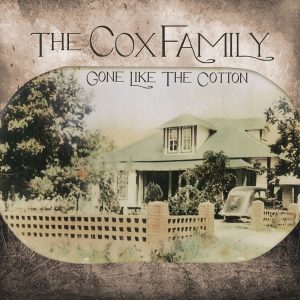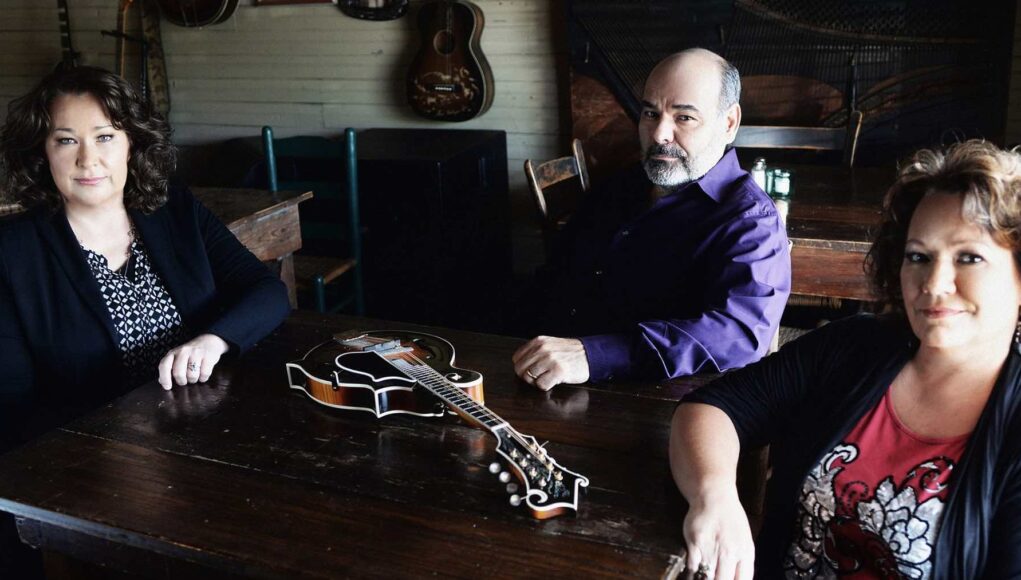 Chances are, unless you have kin there, Cotton Valley, a quiet and somewhat diminished township just up U.S. 371 in Webster Parish, is probably off your beaten path. As with many old towns in Louisiana, a pass-thru summons impressions of fading roots and evanescent traditions–mores which seemed so sturdy just a short time ago. It was among this rural landscape with its idyllic family values and deep sense in God that Grammy Award winning artists The Cox Family were reared.
Chances are, unless you have kin there, Cotton Valley, a quiet and somewhat diminished township just up U.S. 371 in Webster Parish, is probably off your beaten path. As with many old towns in Louisiana, a pass-thru summons impressions of fading roots and evanescent traditions–mores which seemed so sturdy just a short time ago. It was among this rural landscape with its idyllic family values and deep sense in God that Grammy Award winning artists The Cox Family were reared.
It’s a bit of a task to hear a Cox Family tune and not feel something. With their contribution to the O Brother, Where Art Thou? Soundtrack entitled “I am Weary (Let Me Rest)” they achieved mainstream commercial success in 2000. When Willard Cox, the patriarch of the outfit, suffered a tragic accident that left him paralyzed in 2000, it appeared to be a coda to an already renowned and decorated body of work.
The family started performing in 1976 and were comprised of Evelyn (guitar, vocals), Lynn (bass, vocals), Sidney (banjo, dobro, guitar, vocals), Suzanne (mandolin, vocals), and Willard (fiddle, vocals). They mostly performed at local/regional events until they met fiddler/vocalist Alison Krauss as she was on her rise to stardom. From that point a partnership formed, and the two acts would work together for many years to come.
Krauss and the Family recorded I Know Who Holds Tomorrow in 1994, a beautiful album that garnered a Grammy for “Best Country/Gospel/Bluegrass Album.” In 1995 the Family and Krauss took part in Amazing Grace – A Country Salute to Gospel, a compilation album which also earned a shared Grammy.

Krauss produced the Cox’s major label debut, Just When We’re Thinking It’s Over for Asylum Records in 1996. The album was a slight departure from their purist traditional style of earlier recordings, though no less authentic. It employed more contemporary sounds and instruments, but stuck to the roots which they rendered best. Their cover of the classic “Runaway” by Del Shannon was adapted to accentuate Suzanne’s sublime serenade. Other tracks such as “Cry Baby Cry” and “Nothing Else I Can Do” exemplified Sidney’s knack as a truly gifted songwriter. The album amassed ample acclaim, however sales remained largely modest. Krauss and the family went back into the studio for a follow-up, only to be dropped from Asylum before the album could be completed.
One might expect that sort of setback to mark a break from mainstream ambitions, however when they laid down those tracks for the O Brother, Where Art Thou? Soundtrack shortly after, their work with the compilation soared to almost unimaginable success, and the album hit number one on several major album charts including pop, country, and bluegrass. What may have been a pinnacle in the group’s success was unfortunately marred by personal tragedy when Willard was injured in an automobile accident that same year.
[soundcloud url=”https://api.soundcloud.com/tracks/22367664″ params=”auto_play=false&hide_related=false&show_comments=true&show_user=true&show_reposts=false&visual=true” width=”100%” height=”166″ iframe=”true” /]
In the years following the tragedy, you were lucky to catch the active members at one of a handful of local events, such as the Germantown Bluegrass Festival, and perhaps there was no better way to experience them than in a fold up lawn chair in a grassy field with an old pioneer porch supplanting a stage. As time passed, such encounters became even more uncommon, and it began to appear as if the sounds of The Cox Family were truly those of a former day. But just last year Alison Krauss unearthed those unfinished recordings from the Asylum vault with the help of some old record execs, and she brought new life into a catalog due for at least one more volume. New vocals were added, as well as a new song, the eponymous “Gone Like the Cotton,” a reflection on days and loved ones passed, which became the title for the album released just last week.
 Gone Like the Cotton has a way of taking us back right where The Cox Family left off. The sound incorporates many of the same styles as Just When We’re Thinking It’s Over, and the quality of the vocals indicates that time has in no way diminished these artists’ talents. But there is certainly an added feeling of longing – not exactly nostalgia, but perhaps a eulogic ode to people, places, and traditions which continue to fold with time.
Gone Like the Cotton has a way of taking us back right where The Cox Family left off. The sound incorporates many of the same styles as Just When We’re Thinking It’s Over, and the quality of the vocals indicates that time has in no way diminished these artists’ talents. But there is certainly an added feeling of longing – not exactly nostalgia, but perhaps a eulogic ode to people, places, and traditions which continue to fold with time.
In light of 21st century “progress,” the question of how and if such faded roots in North Louisiana will continue to influence us remains to be seen. Some may wonder whether they were even there to start. Were said values just idealized notions of the people and places we wished we were?
Well…. just hold on there one minute. Now… take your shoes off. Locate your nearest porch-swing, rockin’ chair, or any other swayin’ device. Take out your mp3 player or your iPhone, watch phone, or whatever you’ve got and put on one of those Cox Family records. Now…. maybe you’re home. Maybe you’re somewhere far away. Maybe your foot’s sore from all that tappin’. Wherever it is, it’s somewhere. It’s simple. It makes you feel good, and you needn’t worry if it’s name brand or generic.
[soundcloud url=”https://api.soundcloud.com/tracks/215590034″ params=”color=ff5500″ width=”100%” height=”166″ iframe=”true” /]
At a day where a search for the real comes up so far and few, every now and then you find one of those rare gems, and it turns out it’s a lot closer than you thought. Wherever you find your truth, how near or how far, however long it takes – hold it close to your heart. For one day, just like you and I, it’ll all be “gone like the cotton.”

